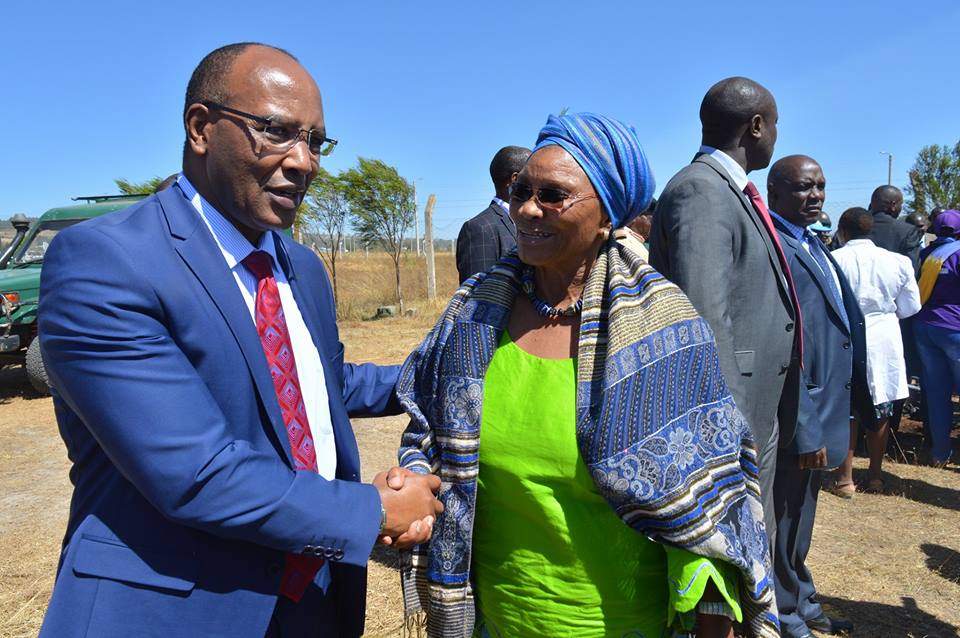GBM Blog
World Wetlands Day 2018
 On February 2, 2018, we were honored to celebrate this year’s World Wetlands Day in Nyandarua County. The event, hosted by Nyandarua County Governor Francis Kimemia, was graced by Cabinet Secretaries Najib Balala, Prof. Judi Wakhungu and Sicily Kariuki among other dignitaries and head of organizations.
On February 2, 2018, we were honored to celebrate this year’s World Wetlands Day in Nyandarua County. The event, hosted by Nyandarua County Governor Francis Kimemia, was graced by Cabinet Secretaries Najib Balala, Prof. Judi Wakhungu and Sicily Kariuki among other dignitaries and head of organizations.
Lake Ol Bolossat, the event’s venue, has been defined as a crown jewel in Central Kenya. However, like most wetlands in the country, it is gradually deteriorating. The beauty and economic benefits from this lake are at stake as activities such as farming, overgrazing and encroachment on its riparian areas now pose a great threat.
Since 2006, the Green Belt Movement has been advocating for the protection of this wetland which our Founder, Professor Wangari Maathai, was very passionate about.
Too few people realize the numerous benefits wetlands provide, and their importance for humankind and the planet. They are a source of our water; play home to more than 100,000 freshwater plant and animal species; and are essential to bird life breeding and migration.
Speaking at the event, the Cabinet secretary ministry of Environment and Natural Resources, Prof. Judi Wakhungu declared that Lake Ol Bolossat has been gazetted as a protected wetland area effective January 24th 2018. “The documents are now with the Attorney General but the effective date of Lake Ol Bolossat gazettement was January 24 and the lake stands as a protective wetlands area,” the CS said.
Following this declaration, the National Lands Commission Chairman, Mohammed Swazuri, stated that all title deeds pertaining to the land around the lake stood obsolete. He noted that according to sections 10, 11 and 12 of the Lands Act 2012, the issuance of a gazette notice means the title deed of the land in question and any others prior to the notice cease.
World Wetlands Day provides an opportunity to take stock of the many values of wetlands and also to raise awareness of the benefits of wetlands in general and the Ramsar Convention in particular.
The Convention promotes integrated approaches to managing wetland systems to retain their natural values while ensuring appropriate human use of these areas for future generations.
To achieve definitive conservation of this and other wetlands, the first objective should be to empower communities to better manage their environment.
The Green Belt Movement has been building capacity among communities and educating them on the need to conserve these precious natural resources. A lot of advocacy work around the wetlands has increasingly created a positive impact within the community members.
In line with this, GBM has partnered with other environmental-conscious organizations and County Governments in building capacity on environmental management and also implementing the 3Rs approach to waste management: Reduce, Reuse and Recycle. In other words, we should reduce the level of waste we produce, reuse items rather than throwing them away, and recycle items that can be recycled.
The 3Rs can make a big difference and can help us achieve not only clean towns but also healthy wetlands in line with this year’s slogan “Healthy Wetlands, Clean Towns”.
The theme for this year’s World Wetlands Day was “Wetlands for a sustainable urban future.
Let's work together to make this year a turning point in our efforts to conserve our wetlands and riparian reserves.
